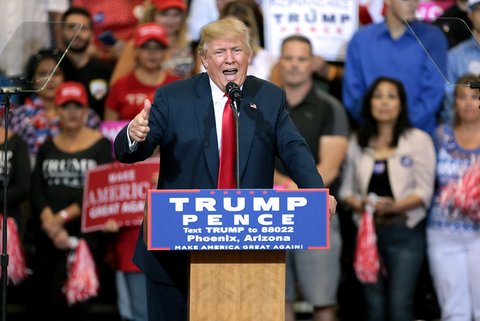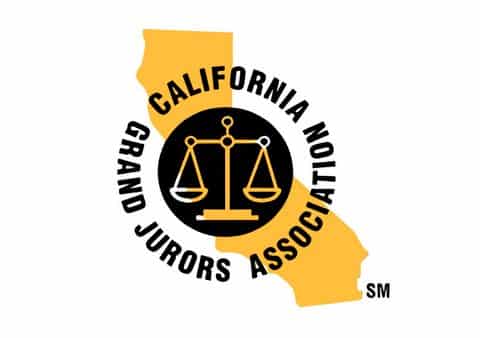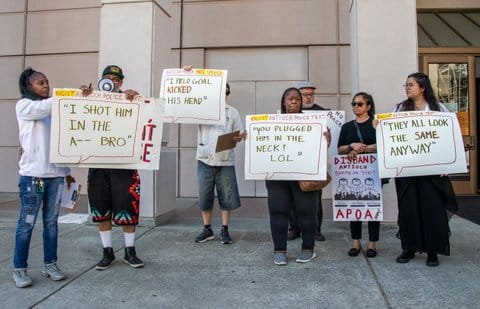
31 May Trump is Convicted of 34 Felonies, But Justice Won’t Immediately Be Served

Former President Donald Trump, seen at a 2016 campaign rally in Phoenix, on Thursday was found guilty on all 34 counts in a so-called hush money trial. (“Donald Trump” by Gage Skidmore / Flickr / CC BY-SA 2.0 license)
By Sunita Sohrabji, Ethnic Media Services
Twelve New York jurors on May 30 delivered the shot heard round the world, convicting former President Donald Trump of 34 Class E felonies after just two days of deliberation.
Trump is the first former or sitting American president to be convicted on felony charges. He was accused of falsifying business records which indicated he had paid a fixer to pay out “hush money” to adult film actress Stormy Daniels, covering up a sex scandal that threatened to derail his 2016 bid for the White House.
“The justice system has spoken. No person, not even a former president, is above the law,” Lauren-Brooke Eisen, senior director of the Brennan Center’s Justice Program, told Ethnic Media Services shortly after the verdict was announced.
Trump Speaks
The former president’s sentencing has been set for July 11, 4 days before the Republican National Convention in Milwaukee. Trump, now a convicted felon, is not barred from continuing his presidential campaign and will likely attend the RNC.
“This was a disgrace. This was a rigged trial by a conflicted judge who was corrupt,” said Trump outside the courtroom after the verdict was delivered. “The real verdict will be delivered Nov. 5 by the people,” he said.
Trump is certain to appeal the verdict to the Appellate Division in Manhattan, and then possibly to the New York Court of Appeals, said Eisen, adding that the case could continue on for years. The former president would remain free, until all his appeals have been exhausted.
No Immediate Resolution
“This case will not be resolved before the presidential election in November,” she said.
Importantly, since this is a state case, if Trump were to win office, he would not be able to pardon himself. He also has one other state case and two other federal cases pending against him.
Here are excerpts from the interview. Note: The Brennan Center is a 501 (c)(3) nonprofit organization; thus, Eisen could not discuss the impact of the verdict on the 2024 presidential election.
EMS: What do you anticipate Trump’s sentence might be, given the 34 charges against him?
Loren-Brooke Eisen: Yeah, that’s an important question. So the former president was convicted of 34 felony crimes. But it’s important to understand these are Class E felonies. And those are the least serious type of felonies in New York State.
For individuals who have been convicted of an E felony, even multiple E felonies, if they are non violent crimes — which these are — and if it’s the defendant’s first time of being convicted, then it’s very likely that the judge may hand down a non-prison sentence.
It is still possible that the former president could receive a prison sentence. But it’s also very likely that he might receive some sort of probation, or fines, maybe even community service, as part of the sentence.
What factors do you think might influence New York State Supreme Court Judge Juan Merchan in determining the type of sentence?
Eisen: The judge will have read a pre-sentencing report. The Probation Department will likely interview the former president, and they will then prepare this pre-sentencing report.
One of the pieces of information in this report will be whether the former president takes responsibility and feels remorse for this crime. Again, it’s just one factor the judge will take into consideration when deciding on a sentence.
Given the unprecedented nature of this case, it will be interesting to see what the judge decides. On the one hand, the judge may not want to put a former president and a current presidential candidate behind bars. But on the other hand, the judge could, within the law, sentence the former president to time behind bars.
For a Class E felony, he would be eligible to perform a certain number of community service hours.
If Trump is granted probation, what would that look like?
Eisen: Something that’s really interesting about a potential probation sentence for the former president is that he might not be allowed to leave the state without requesting that through his probation officer. So that could prove a little bit tricky on the campaign trail.
He could also request to leave the state and have his probation transferred to another state. The court would have to agree to that, and he’d likely need to have an established residence in that other state.
Trump is likely to appeal the verdict. What happens then?
Eisen: That would result in the case weaving its way through the appellate system for many years.
So what would happen is the former president and his lawyers would appeal the conviction to the Appellate Division in Manhattan. And if the Appellate Division did not overturn the conviction, then they would appeal the case likely to New York’s highest court, the New York Court of Appeals.
The former president would remain at liberty pending the appeal, which could take a number of years.
Was the New York jury unique? Could this same verdict come down in any other state?
Eisen: I don’t want to speculate on a New York jury versus another jury. But 12 jurors heard all of the evidence, all of the facts, listened to the judge, read the jury instructions about the law, and they unanimously agreed on a verdict which is a conviction of 34 counts.
What impact does the verdict have on Trump’s presidential bid?
Eisen: You know, a lot of people are asking if this criminal conviction bars the former president from continuing his pursuit of the presidency. Can he still serve as a president of the United States if elected?
And the answer is that the U.S. Constitution says very little about what the requirements are for presidential candidates other than they must be at least 35 years old, they must be a natural born U.S. citizen, and they must have lived in the U.S. for at least 14 years.
There’s nothing in the Constitution itself that bars someone running for the office of President of the United States because they have a criminal record.
And the Constitution does not bar someone with a criminal conviction from serving as the president.





No Comments